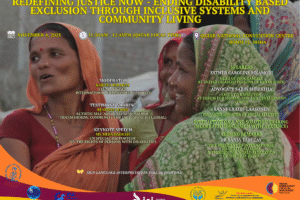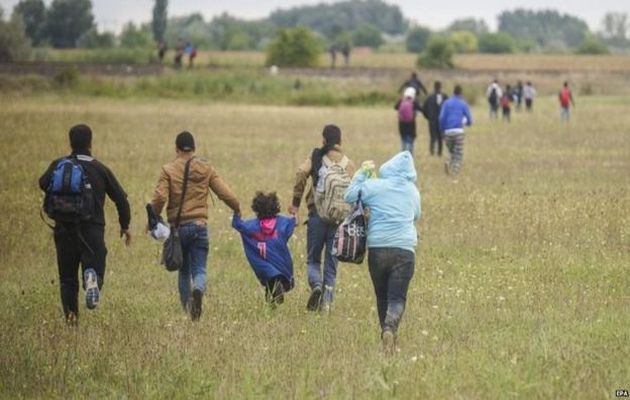
Jul 10, 2018 | Advocacy, Non-legal submissions
The ICJ has joined almost 180 other organizations in calling for the final draft of the UN Global Compact on Migration (GCM) to reflect strong legal protections for human rights.
Recognizing the potential of the GCM to protect migrants in irregular and/or vulnerable situations, civil society organizations are calling on all States to ensure that the final document truly lives up to the spirit of the New York Declaration for Refugees and Migrants.
The statement was presented to Member States and the GCM Co-Facilitators (the governments of Switzerland and Mexico) in an informal dialogue on Tuesday, 10 July.
The statement calls on States to address the following issues:
- Regular vs. irregular: The GCM must not include a distinction between migrants with regular status and those whose status is irregular which falls below human rights law, international labor standards and other international obligations.
- Non-Refoulement: The GCM must explicitly mention the principle of non-refoulement, which prohibits returning a person to a place where her/his life would be in danger. Including it is fundamental to ensure that migrants are provided with full live-saving protection.
- Vulnerable situations: The GCM must address the situation of vulnerable migrants, and it must not weaken protection for victims of natural disasters and climate change, who are not adequately addressed in the Global Compact for Refugees.
- Right to privacy: The final document must protect migrants’ right to privacy of personal information. Otherwise, the GCM risks preventing them from accessing certain social services and discouraging them from participating in data collection efforts, which are vital for migration management.
- Criminalization of migrants and those who assist them: The GCM must avoid all provisions and language that criminalizes migrants crossing an international border in search of safety or of people and organizations that support to them.
- Detention of migrant children: The GCM must include provisions towards ending the practice of detaining migrant children by explicitly mentioning the availability and accessibility of non-custodial and community-based alternatives.
- Implementation, review, and follow-up mechanisms: The Compact needs robust implementation, review, and follow-up mechanisms to ensure accountability and transparency in achieving its goals. Civil society organizations ask for a fully mandated partnership role in implementation and monitoring the GCM.
To be effective, the statement concludes, migration management must be credible not only to States, but also to migrants.
The statement is available in PDF format here: UN-Advocacy-JointStatement-Migrants-2018
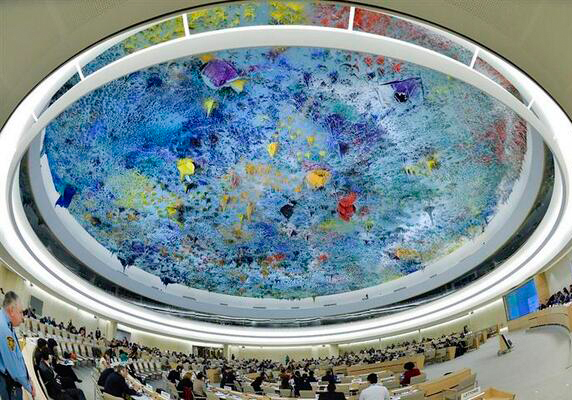
Jun 20, 2018 | Advocacy, Non-legal submissions
The ICJ issued a statement today on the occasion of an interactive dialogue with the UN Special Rapporteur on the human rights of migrants, on an effective accountability mechanism for the European Border and Coast Guard Agency.The ICJ was not able to read the statement during the interactive dialogue due to the limited time provided for NGO statements. The statement was as follows:
“The International Commission of Jurists (ICJ) welcomes that the report (A/HRC/38/41) of the Special Rapporteur on the human rights of migrants recognizes the importance of monitoring mechanisms, access to justice, and accountability in the context of returns (para 78).
The ICJ, which is a member of the Frontex Consultative Forum on Fundamental Rights, shares the conclusion of the Special Rapporteur that the current implementation of an individual complaints mechanism for Frontex is “rather ineffective, since it largely relies on the discretionary powers of internal oversight bodies” and deficient in its follow-up procedure (para 84).
Furthermore, the ICJ considers that giving the Executive Director of Frontex competence to decide the merits of complaints creates a reasonable perception of bias. This, together with the lack of any requirement to publish its decisions, mean the existing complaint mechanism cannot constitute an effective remedy for human rights violations.
The ICJ is particularly concerned at these shortcomings in light of, as the Special Rapporteur noted, the “externalization of States’ obligations through the actions of international or regional organizations during return procedure” (para. 82). Such externalisation prevents victims of human rights violations from accessing effective remedies.
Finally, the ICJ notes that actions such as the closure of harbours to ships rescuing migrants, including refugees, are in clear breach of the international law of the sea and effectively prevent any access to legal remedies. Such actions should be condemned by this Council.
The ICJ supports the Special Rapporteur’s recommendation that States and international and regional organisations must ensure accountability for human rights violations and invites him to explore further such organisations’ responsibility in this regard under human rights law.”
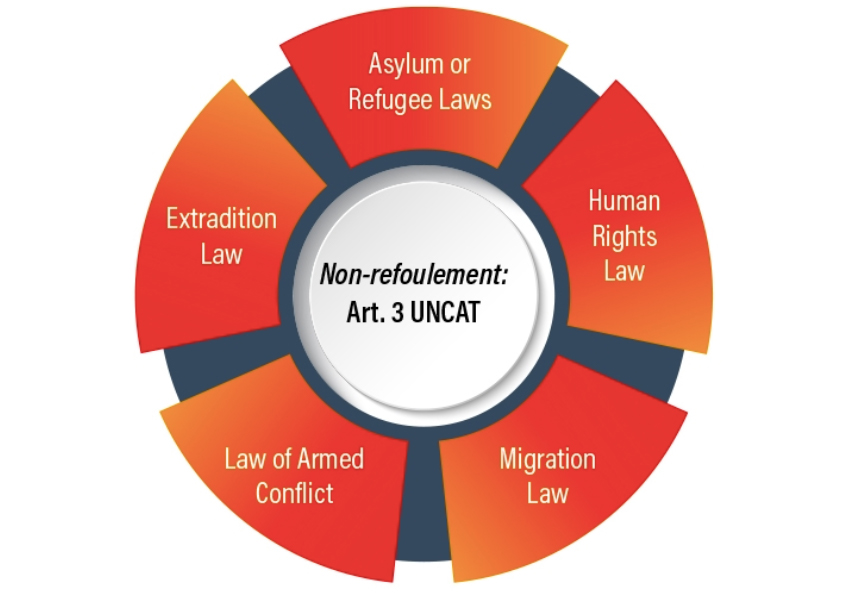
Mar 14, 2018 | News
The new CTI tool on non-refoulement covers:
- constitutional and legislative provisions;
- national procedures;
- procedural rights to be guaranteed to those facing deportation or expulsion;
- training; and
- visa and stay arrangements for when return is prohibited.
There is also a section on non- refoulement in the extradition context.
The purpose of this and other CTI Implementation Tools is to inspire other States to take action through exchanges of good practices.
The tool also provides timely and practical information and advice for States in light of the recently released UN Committee against Torture’s General comment on the implementation of Article 3 of the Convention in the context of Article 22.
Some of the laws mentioned in this tool detail the powers that can be exercised by State authorities to remove a person and the constraints on those powers, as well as the relevant administrative and judicial procedures to be followed. National legislation has also detailed the rights of persons within those procedures (photo).
The tool was developed for the CTI by the ICJ with the support of the University of Bristol’s Human Rights Implementation Centre.
CTI’s series of UNCAT Implementation Tools are available here.
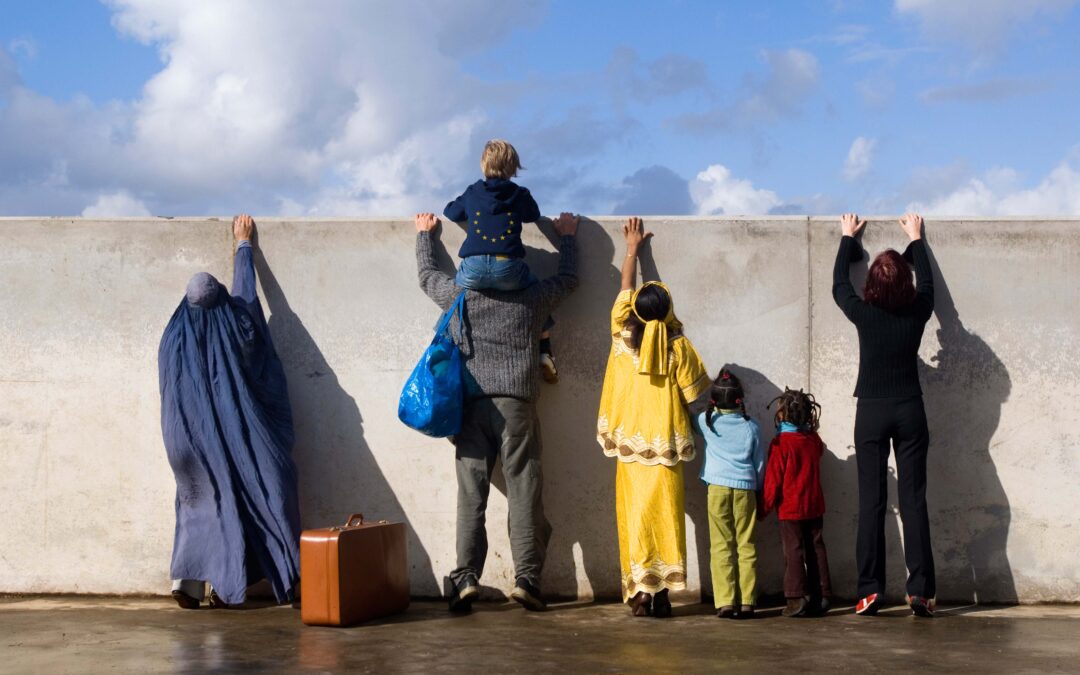
Feb 28, 2018 | Uncategorized
The ICJ together with 22 civil society organisations and UN agencies call on EU decision makers in a joint statement not to use coercion against children in order to obtain fingerprints and other biometric data.
The new EURODAC proposal currently being considered by the European Commission, Council and Parliament expands the purpose of the current database of asylum applicants to facilitate the identification of “irregularly staying third country nationals” through the use of biometric data and it lowers the age at which a child must be registered from 14 to six.
The European institutions are discussing allowing national authorities to use coercion to obtain fingerprints and facial images of children.
The identification and registration of children contributes to their protection within and across borders.
This must be done in a child-sensitive and child protective manner and the best interests of the child must be a primary consideration in such matters, in accordance with Article 3 of the Convention on the Rights of the Child.
Coercion of children in any manner or form in the context of migration related procedures, violates children’s rights, which EU Member States committed to respect and uphold.
All children, no matter their age, should be exempted from all forms of coercion in the EURODAC Regulation, in full compliance with the UN Convention on the Rights of the Child.
The UN Convention on the Rights of the Child (UN CRC) states that every person below the age of eighteen years is a child (art. 1).
States Parties should take all appropriate measures to protect children from all forms of physical or mental violence (art. 19.1) and no child shall be deprived of his or her liberty unlawfully or arbitrarily (art. 37).
The Committee on the Rights of the Child has affirmed that “No violence against children is justifiable; all violence against children is preventable”, where violence includes both physical and mental violence (General comment No. 13).
It has equally clarified: “that the detention of any child because of their or their parent’s migration status constitutes a child rights violation and contravenes the principle of the best interests of the child”.
Both the UN CRC and EU Charter of Fundamental Rights state that child’s best interests must be a primary consideration in all actions relating to children (art. 3 UN CRC, art. 24.2 EU Charter).
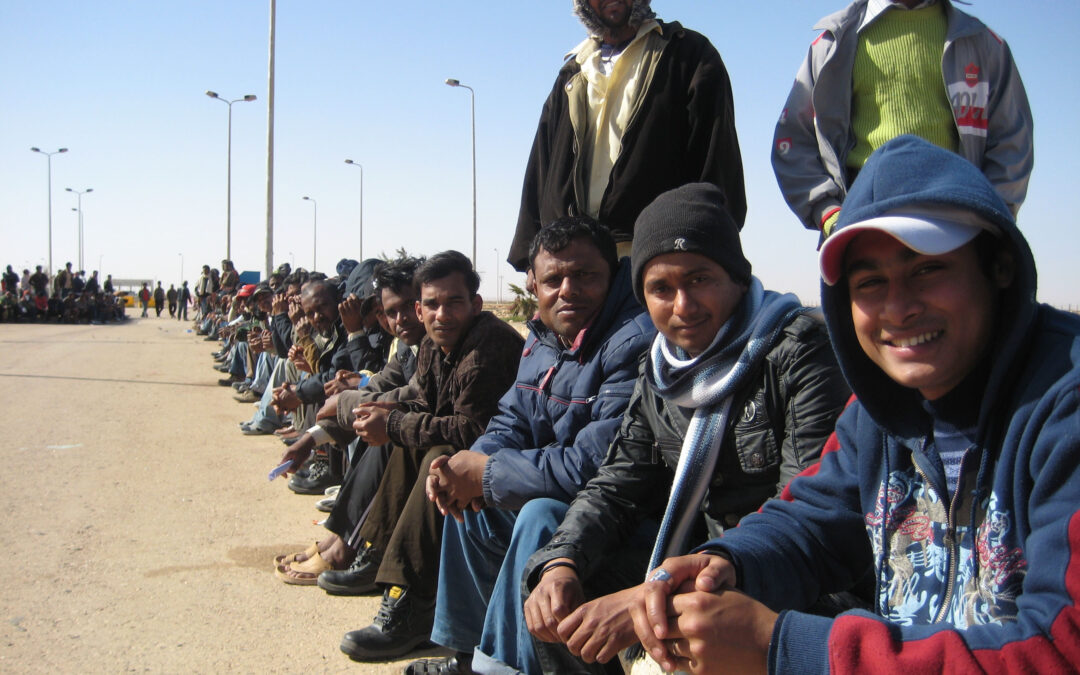
Nov 7, 2017 | Agendas, Events, News
The ICJ delivers today and tomorrow a training on asylum, migration and international human rights law, organised by UNHCR-BiH, the Sector for Asylum of the Ministry for Security and Vaša Prava BiH.
The training, that takes place in the capital Sarajevo, will be delivered to officers of the Government of Bosnia and Herzegovina as well as of independent State institutions.
It will focus on human rights law related to the entry of migrants, including refugees, to the territory of a State, to the State’s obligations on international protection as well as to the rules applicable to detention of foreign national and their rights, and alternatives to detention.
BiH-Training-DetentionMigration&Asylum-ICJ&others-2017-eng (download the agenda in English and Bosnian)







